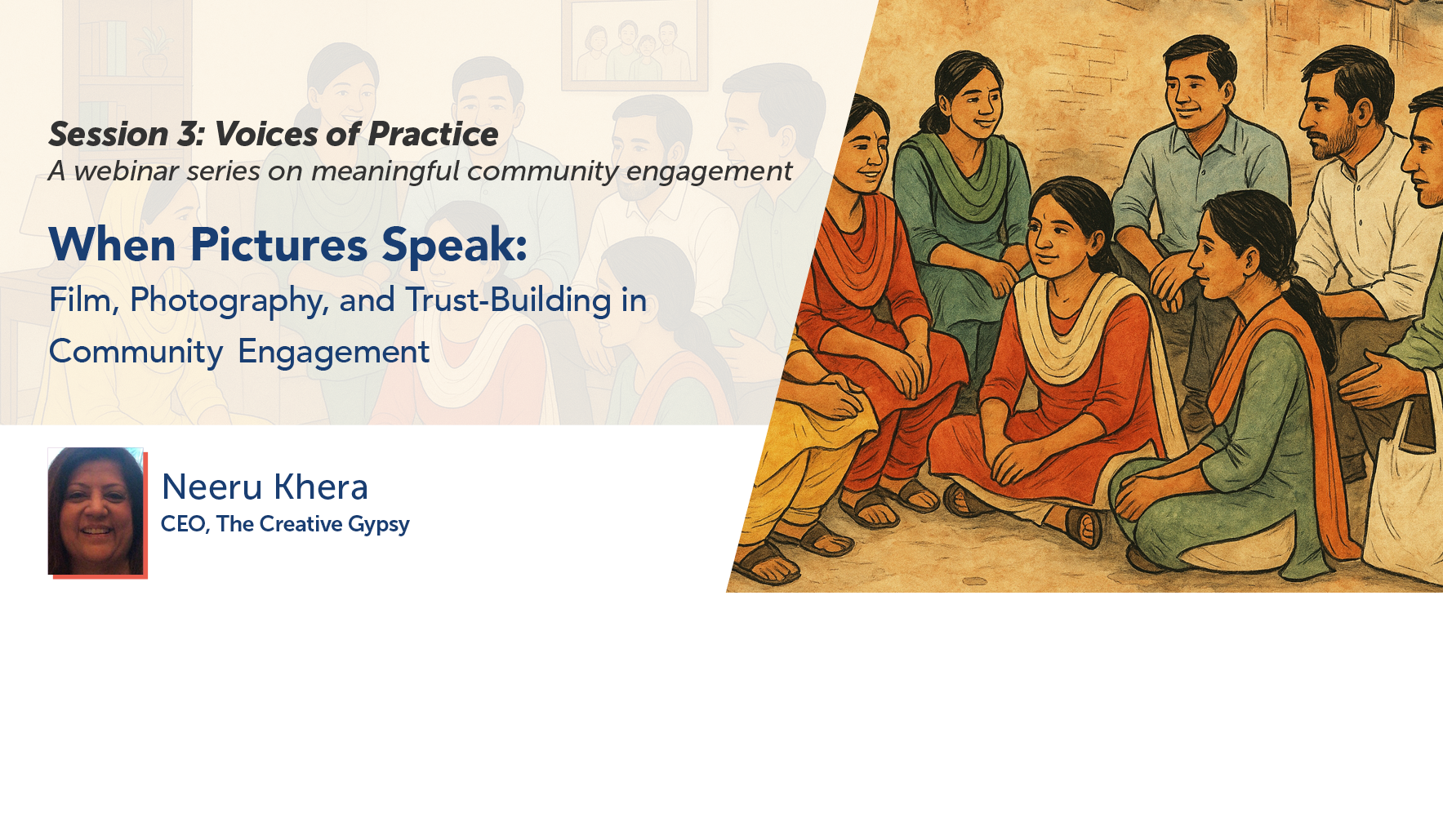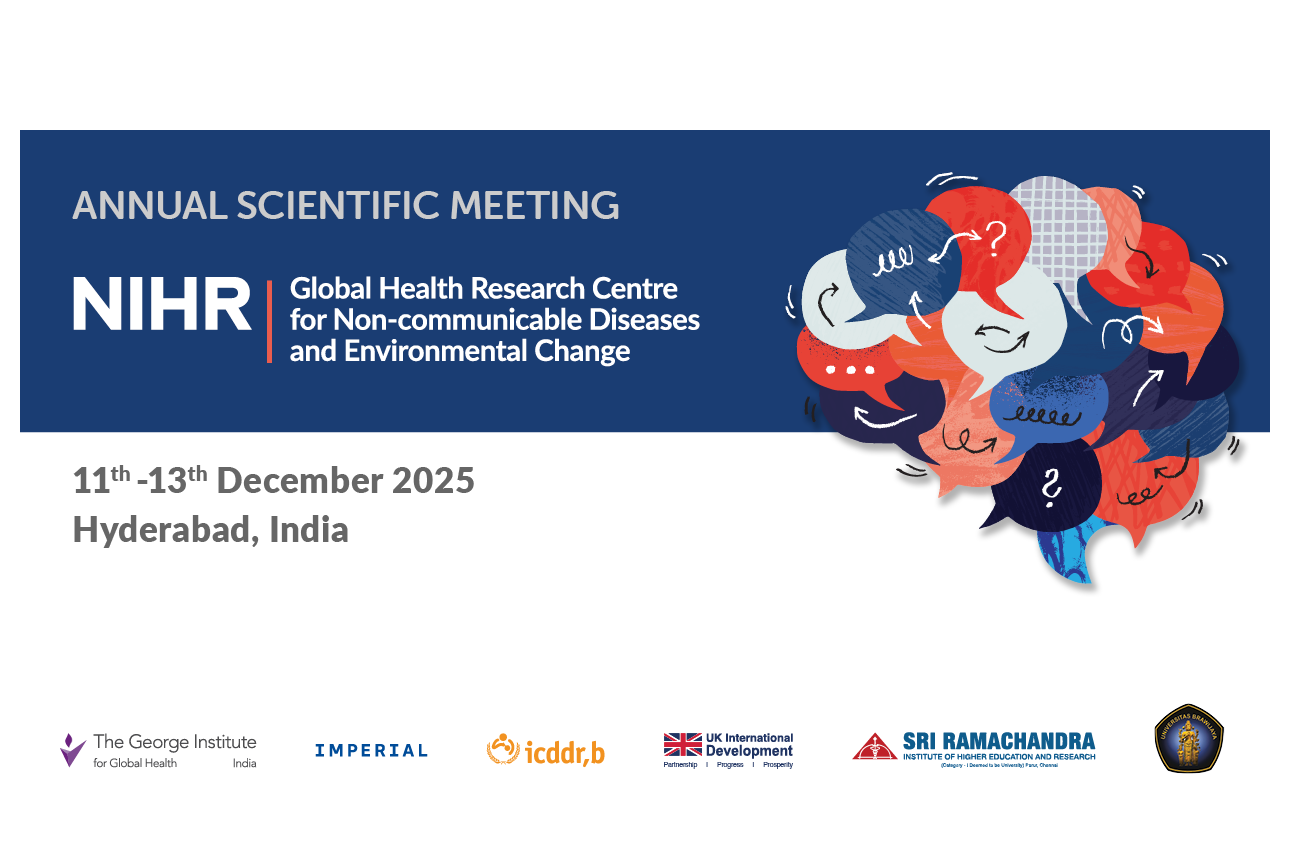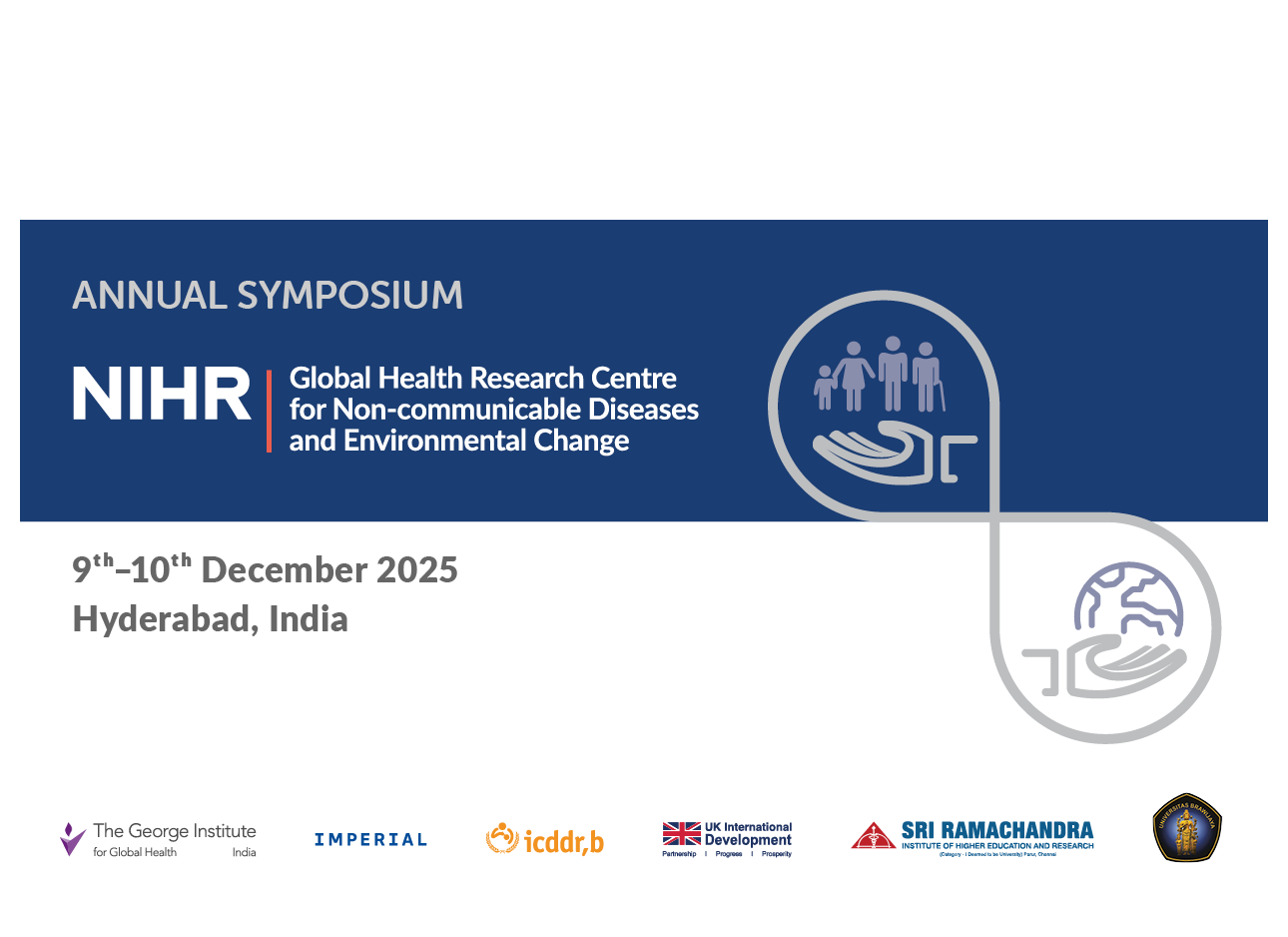On 28th August 2025, nearly 100 participants joined the inaugural session of Voices of Practice: A Series on Meaningful Community Engagement. The session, titled Who Owns Research? Shifting Power to Communities, was led by Rituu B Nanda, Participatory Program Advisor at Global Fund for Children (GFC). She was joined by GFC’s Indrani Chakraborty, Co-Director, South Asia and GFC community-based partners from Bangladesh and India- Avani Sanstha, Grow your reader Foundation and Suchana. GFC is an intermediary grant making organization which has provided flexible funding and non-financial support on organizational development and community led change to the grass-root organizations.
Reframing Research Ownership
In the opening session, Maroof Khan and Rituu B Nanda invited participants to reflect on their own engagement practices. Through an interactive session via Mentimeter, participants shared examples of meaningful engagement in their own work, ranging from co-produced health interventions to participatory theatre. When asked to place themselves on the “ladder of participation,” many admitted they were still in the middle rungs: moving beyond consultation but not yet fully reaching shared ownership.
This honest assessment of themselves by the participants underscored an important point: shifting power is a process, and while progress is visible, more remains to be done.
Stories from the Ground
Avani, India
Jayshri Kamble, and Anuradha Bhosle shared how villagers in Nandwal formed a research team to explore the root causes of rising suicides. The village research team designed the study and collected data after receiving training in research methods. They later presented the findings to over 100 villagers through a drama performance. This sparked several village-led initiatives, such as creating well-being posters for the Ganesh festival and organizing a children’s rally on the same theme.

Sixty boys and men recognized that their well-being required stronger social connections and more time in group activities that help them relax. As a result, they began playing Lezim, a traditional Maharashtrian game, both to reduce their mobile phone use and to enjoy the dance and music that the game involves. This practice is helping them revive community bonds while finding joy in their shared cultural tradition.
Jayshri Kamble, one of the community facilitators and presenter noted,
“What we need to do is recognize the power people already hold and guide it in the right direction.”
Suchana, India
Bappa Das described how indigenous youth in West Bengal used folk songs, drama, and traditional dance to share research findings in their own Santhali language. This approach not only made evidence accessible but also revived cultural practices while sparking dialogue on alcohol misuse, early marriage, and collective responsibility.

Grow Your Reader Foundation, Bangladesh
Founder Sadia Jafrin shared experiences of youth-led dissemination. School students came forward to disseminate the findings in the form of a song. The students composed a song based on baseline findings and presented it in the form of music and movement called Jagiran. Boys and girls performed together for the first time.

Dissemination was an emotional experience for parents and community members to hear the baseline findings from the children of the village because the children were narrating the stories from their own village and their lived experience. It immediately sparked conversation on actions the community could take to resolve the issues.
The chat was alive with reflections:
“So inspiring,” “Real community-led research,” and “This is how ownership looks in practice.”
A Moment of True Ownership
Perhaps the most striking example of community ownership came from Anil Patil (fondly called Anil Dada), a community researcher from Nandwal village. Though not formally invited, he traveled to Avani’s office to participate in the session and share his reflections.

His presence underscored the very spirit of the conversation, that of research belonging to the communities first, and they must be at the center of knowledge creation.
Key Learnings
Across contexts, a few threads stood out:
- Trust and ownership are built when communities lead at every stage—from defining research questions to sharing findings.
- Creative dissemination (drama, music, games, storytelling) in the form identified by the community strengthens cultural identity while making evidence relatable.
- Shifting power requires humility from researchers, who must move from directing to facilitating. The essential step for this is trusting the tacit knowledge of communities and letting it inform research methodologies.
Looking Ahead
The session encouraged participants to rethink the researcher–community relationship. As one participant wrote in the chat,
“Each presentation reflects how powerful communities can be. The visual reflections are really inspiring.”
By spotlighting lived experiences and grassroots leadership, this conversation marked an important step in reimagining research as a shared journey—owned, led, and sustained by communities themselves.
——————————————————
This research was funded by the NIHR (Global Health Research Centre for Non-communicable Diseases and Environmental Change) using UK international development funding from the UK Government to support global health research. The views expressed in this publication are those of the author(s) and not necessarily those of the NIHR or the UK government.






